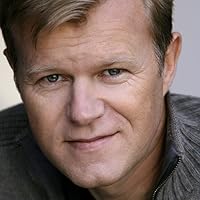

“The Proofs Human society has devised a system of proofs or tests that people must pass before they can participate in many aspects of commercial exchange and social interaction. Until they can prove that they are who they say they are, and until that identity is tied to a record of on-time payments, property ownership, and other forms of trustworthy behavior, they are often excluded—from getting bank accounts, from accessing credit, from being able to vote, from anything other than prepaid telephone or electricity. It’s why one of the biggest opportunities for this technology to address the problem of global financial inclusion is that it might help people come up with these proofs. In a nutshell, the goal can be defined as proving who I am, what I do, and what I own. Companies and institutions habitually ask questions—about identity, about reputation, and about assets—before engaging with someone as an employee or business partner. A business that’s unable to develop a reliable picture of a person’s identity, reputation, and assets faces uncertainty. Would you hire or loan money to a person about whom you knew nothing? It is riskier to deal with such people, which in turn means they must pay marked-up prices to access all sorts of financial services. They pay higher rates on a loan or are forced by a pawnshop to accept a steep discount on their pawned belongings in return for credit. Unable to get bank accounts or credit cards, they cash checks at a steep discount from the face value, pay high fees on money orders, and pay cash for everything while the rest of us enjoy twenty-five days interest free on our credit cards. It’s expensive to be poor, which means it’s a self-perpetuating state of being. Sometimes the service providers’ caution is dictated by regulation or compliance rules more than the unwillingness of the banker or trader to enter a deal—in the United States and other developed countries, banks are required to hold more capital against loans deemed to be of poor quality, for example. But many other times the driving factor is just fear of the unknown. Either way, anything that adds transparency to the multi-faceted picture of people’s lives should help institutions lower the cost of financing and insuring them.”
― The Truth Machine: The Blockchain and the Future of Everything
― The Truth Machine: The Blockchain and the Future of Everything
“The more makeup a woman wears, the more she’s trying to hide; makeup can hide a lot of evil.”
― Happy, Happy, Happy: My Life and Legacy as the Duck Commander
― Happy, Happy, Happy: My Life and Legacy as the Duck Commander
Greg’s 2025 Year in Books
Take a look at Greg’s Year in Books, including some fun facts about their reading.
More friends…
Favorite Genres
Polls voted on by Greg
Lists liked by Greg













